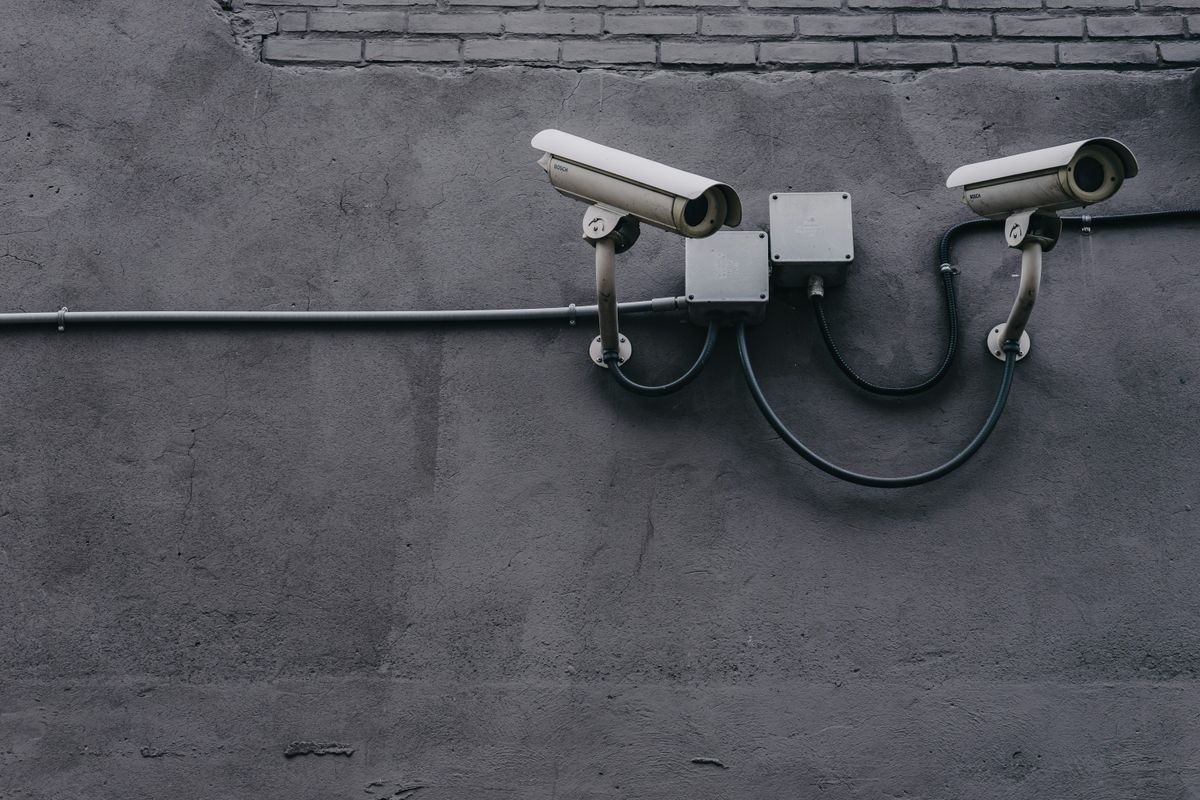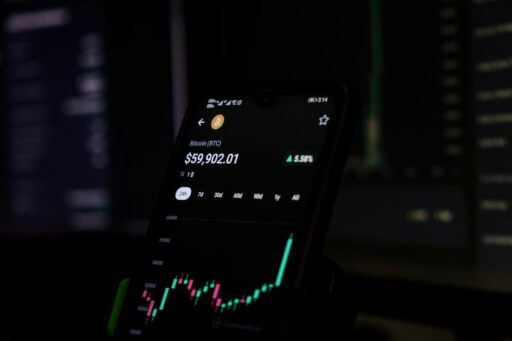In the digital age where cryptocurrencies are becoming increasingly mainstream, securing your digital assets is paramount. The Exodus Wallet is a popular choice for many due to its user-friendly interface and robust security features. This comprehensive guide will delve into the best practices for using Exodus to safeguard your crypto holdings, from setting up your wallet to maintaining privacy and staying vigilant against threats.
Key Takeaways
- Exodus Wallet’s ease of use and strong security measures make it an ideal choice for both beginners and experienced users.
- Advanced security features such as two-factor authentication, multi-signature protection, and reliable backup and recovery procedures are essential for protecting your assets.
- Maintaining anonymity and privacy is crucial in crypto transactions, with strategies like using VPNs and managing multiple wallet addresses to safeguard your identity.
- Wallet address privacy can be enhanced by compartmentalizing transactions and understanding the risks of public versus private address use.
- Staying informed about security updates, recognizing phishing attempts, and engaging with the Exodus community are proactive steps to ensure the safety of your digital assets.
Understanding the Exodus Wallet

An Overview of Features and Services
The Exodus Wallet stands out as a user-friendly platform for managing a diverse range of digital assets. It’s designed to cater to both beginners and experienced users with its intuitive interface and robust security measures. Exodus is a completely decentralized wallet, which means that users have full control over their private keys, ensuring that only they have access to their funds.
Key Features:
- Support for over 100 cryptocurrencies
- Built-in exchange for easy trading
- Live charts and portfolio management tools
- 24/7 customer support
Exodus prioritizes user sovereignty by never having access to the private keys it supplies to its users. This approach aligns with the core philosophy of cryptocurrency, which emphasizes decentralization and individual control over one’s digital assets.
The wallet is accessible across multiple platforms, including mobile devices, desktops, and web browsers, providing a seamless experience for users to manage their assets from anywhere. With its combination of ease of use, security, and cross-platform availability, Exodus Wallet is a solid choice for anyone looking to secure their digital assets effectively.
Setting Up Your Exodus Wallet
Setting up your Exodus wallet is a straightforward process, but it’s crucial to follow each step carefully to ensure the security of your digital assets. Begin by downloading the official Exodus application from the Exodus website or your device’s app store. Always verify that you are using the legitimate site or app store listing to avoid malicious software.
Once installed, you’ll need to create a new wallet. Here’s a simple guide to get you started:
- Install the Exodus wallet application.
- Open the application and select ‘Create New Wallet’.
- Set a strong password to protect your wallet.
- Write down your recovery phrase and store it in a secure location.
Remember, your recovery phrase is the key to your wallet. If you lose it, you lose access to your assets. Treat it with the same level of security as you would with physical cash or important documents.
After setting up your wallet, take some time to familiarize yourself with the interface and settings. Customize your security features and preferences to fit your needs. Regularly updating your wallet software is also essential to maintain security and access new features.
Navigating the User Interface
Once you’ve set up your Exodus wallet, familiarizing yourself with the user interface is crucial for managing your digital assets effectively. The interface is designed to be intuitive, allowing users to easily access their portfolio, exchange cryptocurrencies, and check real-time market data. Navigating through the wallet’s features is straightforward, with clear labels and a logical layout.
- Portfolio: View your asset distribution and current value.
- Wallet: Send, receive, and exchange cryptocurrencies.
- Exchange: Access the in-built exchange feature.
- Backup: Secure your wallet with a recovery phrase.
Remember, taking the time to understand the layout and functionality of your wallet can significantly enhance your security and efficiency in handling crypto transactions.
It’s also important to be aware of the security measures within the wallet. Regularly updating the software ensures you have the latest security features. Be mindful of the information you share online; even a seemingly harmless mention of your wallet can lead to unwanted attention.
Enhancing Security with Advanced Features

Utilizing Two-Factor Authentication
Two-factor authentication (2FA) is a critical layer of security for your Exodus wallet, ensuring that access to your funds requires more than just your password. By implementing 2FA, you add an extra step to the login process that significantly reduces the risk of unauthorized access.
To set up 2FA on your Exodus wallet, follow these simple steps:
- Navigate to the security settings in your wallet.
- Choose the two-factor authentication option.
- Link your wallet to an authenticator app by scanning the QR code.
- Enter the code provided by the authenticator app to verify the setup.
Remember, 2FA codes are unique to your device and change every 30 seconds. Do not share these codes with anyone, as they can be used to gain access to your wallet.
While 2FA is a powerful tool, it’s not infallible. Be vigilant about where and how you use your Exodus wallet, especially when clicking on the "Login" button to access your dashboard. Exploring the features and services of your wallet should always be done with caution to prevent potential security breaches.
Leveraging Multi-Signature Protection
Multi-signature protection is a critical security feature that requires multiple keys to authorize a transaction. This not only enhances security by distributing trust among multiple parties but also provides a safeguard against the loss or compromise of a single key. Implementing multi-signature wallets can significantly reduce the risk of unauthorized access and theft.
- To set up multi-signature protection in Exodus, follow these steps:
- Access the security settings in your wallet.
- Select the ‘Multi-Signature’ option.
- Follow the on-screen instructions to add co-signers and configure the number of signatures required.
By requiring multiple signatures for transactions, users can ensure that funds are not moved without collective agreement, adding an extra layer of consensus to the security protocol.
Remember, the use of multi-signature wallets is especially beneficial for organizations or groups where funds management requires transparency and accountability. It’s also a wise choice for individuals seeking to bolster their wallet’s defenses against potential security breaches.
Backup and Recovery Procedures
Ensuring the safety of your digital assets extends beyond just setting strong passwords and encryption; it’s about having a robust backup and recovery plan in place. Regularly backing up your wallet data is crucial, as it allows you to restore access to your funds in case of device failure, loss, or theft.
To start, always write down your seed phrase and store it in a secure location. This phrase is the key to recovering your wallet, and without it, your assets may be irretrievably lost. It’s recommended to keep multiple copies in different physical locations to mitigate the risk of damage or loss.
Remember, your seed phrase is as important as your private keys. Treat it with the same level of security you would for any other sensitive financial information.
Here’s a simple checklist for your backup plan:
- Write down your seed phrase and store it securely.
- Create digital backups using encrypted storage devices.
- Test your backup by restoring your wallet on a different device.
- Update your backup if you create new accounts or change your password.
By following these steps, you can ensure that you’re prepared for any unforeseen events that may compromise your access to your Exodus wallet.
Maintaining Anonymity and Privacy

The Importance of VPN Use
In the realm of digital currency, maintaining anonymity and privacy is paramount. Using a VPN is a critical step in safeguarding your online activities and crypto transactions. A VPN encrypts your internet connection and conceals your IP address, making it more challenging for third parties to track your movements or determine your real-world location.
When engaging in crypto transactions, the risk of exposing your wallet address and transaction history is significant. A VPN can help mitigate these risks by providing an additional layer of security.
Here are some reasons why a VPN is indispensable for crypto trading:
- It helps prevent your payment data from being compromised.
- It disconnects your online crypto activities from your real-world location, reducing the risk of physical theft or harm.
- It aids in maintaining wallet address privacy by making your transaction history less traceable.
Creating and Managing Multiple Wallet Addresses
In the realm of digital asset security, creating and managing multiple wallet addresses is a cornerstone practice for maintaining privacy. By using different addresses for separate transactions, you can effectively compartmentalize your activities, making it harder for observers to track your funds or determine your total holdings.
When engaging in crypto transactions, it’s crucial to avoid patterns that could link your addresses together. Randomizing the amounts and timing of your transactions can help obscure your financial trail.
Here are some steps to manage multiple wallet addresses effectively:
- Generate a new address for each transaction or recipient.
- Use a dedicated address for public transactions, such as donations or payments.
- Regularly monitor your addresses for any unauthorized activity.
- Consider using a wallet that supports Hierarchical Deterministic (HD) protocols, allowing for streamlined address management.
Remember, while multiple addresses can enhance privacy, they should not be considered a foolproof solution. Always combine this strategy with other security measures for optimal protection.
Avoiding Public Wi-Fi for Crypto Transactions
When managing digital assets, the security of your internet connection is paramount. Public Wi-Fi networks are notoriously insecure, often lacking strong encryption, which makes them hotspots for cybercriminals looking to intercept data. Conducting crypto transactions over these networks can expose your sensitive information, leading to potential theft of your assets.
To safeguard your transactions, always use a secure and private internet connection. If you must use public Wi-Fi, ensure you connect through a reliable VPN (Virtual Private Network). A VPN encrypts your internet traffic, making it much harder for malicious actors to track or steal your data. Here’s a simple checklist to follow:
- Avoid using public Wi-Fi for any crypto-related activities.
- If unavoidable, connect to a VPN before accessing your wallet or making transactions.
- Regularly update your VPN software to ensure maximum security.
By adhering to these practices, you significantly reduce the risk of compromising your digital assets while using public networks.
Best Practices for Wallet Address Privacy

Compartmentalizing Transactions
Compartmentalizing your transactions is a strategic approach to enhance security and privacy when dealing with cryptocurrencies. By using multiple wallet addresses for different transactions or purposes, you can effectively separate your digital assets. This method not only obscures the connection between your transactions but also limits the impact of a potential security breach.
When engaging in various crypto activities, it’s advisable to create distinct addresses for each. For instance, one address could be dedicated to trading, another for savings, and a separate one for participating in new protocols or applications. This compartmentalization ensures that a compromise in one area does not affect your entire portfolio.
Remember, the goal is to prevent your entire transaction history from becoming traceable, which could lead to targeted attacks or unwanted attention. Here are some practical steps to compartmentalize effectively:
- Use a different address for each type of transaction.
- Allocate addresses for public use and keep others strictly private.
- Regularly monitor the activity of each address to detect any unusual patterns.
Mitigating Real-Life Threats
In the realm of cryptocurrency, the intersection of the digital and physical worlds can create unique security challenges. Protecting your physical safety and privacy is as crucial as securing your digital assets. Malicious actors who can associate your wallet address with your physical location pose a dual threat, risking both your digital and real-world security. Using tools like VPNs can help mask your IP address, severing the link between your online activities and your real-world location, thereby reducing such risks.
It’s essential to be mindful of the information you share online. Avoid posting about your crypto holdings or transactions on social media, as this can attract unwanted attention. Additionally, consider using different wallet addresses for separate transactions to prevent a single point of compromise from endangering your entire portfolio.
For activities that necessitate public disclosure of your address, such as donations or receiving payments for services, use a separate wallet specifically for these purposes. This strategy not only enhances privacy but also serves as a buffer, protecting your main holdings from potential vulnerabilities associated with public interactions.
Public vs. Private Address Use
In the realm of cryptocurrency, understanding the distinction between public and private address use is crucial for maintaining security and privacy. Public addresses are meant for receiving transactions and can be shared without compromising your funds. However, they can be traced back to your transaction history, potentially exposing your financial activities.
Private addresses, on the other hand, are akin to the keys to your digital vault. They should never be shared, as they allow full access to your assets. To enhance privacy, it’s recommended to use different public addresses for separate transactions, a practice known as address compartmentalization.
When engaging in crypto transactions, always ensure that your private address remains confidential. Use public addresses for receiving funds, and consider creating new ones for different transaction types or counterparties to prevent linking your entire financial history to a single address.
Remember, the way you manage your addresses can significantly impact your digital asset security. By using separate wallets for public disclosures and avoiding predictable patterns in address use, you can better protect your anonymity and reduce the risk of targeted attacks.
Staying Informed and Vigilant

Keeping Up with Security Updates
In the dynamic landscape of cryptocurrency, keeping your Exodus wallet secure is paramount. Regularly updating your wallet software is a critical step in protecting your digital assets from new threats. Updates often include patches for vulnerabilities that have been discovered since the last version, as well as improvements to the wallet’s functionality.
- Always download updates from the official Exodus website or app stores.
- Verify the authenticity of the update by checking the digital signature or hash.
- Schedule regular intervals to check for updates, such as weekly or after any major crypto news.
By staying proactive with updates, you not only safeguard your assets but also enhance your wallet’s performance.
Remember, neglecting updates can leave your wallet susceptible to security breaches. As part of your routine, explore the best crypto wallets, platforms, and security measures to stay ahead in the evolving world of cryptocurrencies.
Recognizing and Avoiding Phishing Attempts
Phishing attacks are a prevalent threat in the crypto space, often leading to devastating losses. Recognizing the signs of a phishing attempt is crucial for protecting your digital assets. Here are some tips to help you stay safe:
- Tip 1: Be wary of fake ads in search engines that may lead to malicious sites.
- Tip 2: Create strong, unique passwords for each of your accounts.
- Tip 3: Utilize a password manager to keep track of your credentials securely.
Always verify the authenticity of websites and emails before entering any sensitive information. Look for subtle misspellings in URLs or email addresses, and never click on suspicious links.
Remember, no legitimate company will ask for your private keys or wallet passphrase. If you encounter such requests, it’s a clear red flag. Stay informed about the latest phishing scams and employ these strategies to safeguard your investments.
Participating in the Exodus Community for Support
The Exodus community is a vital resource for users seeking support and information. Engaging with fellow users can provide insights into the latest security practices and alert you to emerging threats. By participating in forums and discussion groups, you can stay ahead of potential risks and learn from the experiences of others.
- Stay active on official Exodus forums and social media channels.
- Share experiences and solutions to common security challenges.
- Ask questions and seek advice from more experienced users.
Remember, the strength of a community lies in its members’ willingness to help each other. A proactive approach to community participation not only enhances your own security but also contributes to the safety of all users.
Conclusion
In conclusion, securing your digital assets with Exodus Crypto Wallet involves a multifaceted approach that includes leveraging VPNs for anonymity, practicing wallet address privacy, and being vigilant about public Wi-Fi usage. As we’ve explored throughout this guide, each measure plays a critical role in safeguarding your cryptocurrency from various threats. By implementing these strategies, you can enhance your digital security and navigate the crypto space with greater confidence. Remember, the key to maintaining robust security is continuous education and adapting to new challenges that arise in the ever-evolving landscape of digital currencies.
Frequently Asked Questions
What is Exodus Wallet and what features does it offer?
Exodus Wallet is a user-friendly, multi-cryptocurrency wallet that offers a range of features, including a built-in exchange, live charts and portfolio, one-click staking, and 24/7 customer support. It’s designed to provide an easy and secure way for users to manage, exchange, and secure their digital assets.
How do I set up my Exodus Wallet?
To set up your Exodus Wallet, download the application from the official website, install it on your device, open the app, and follow the on-screen instructions to create a new wallet. Remember to back up your wallet by writing down your recovery phrase and keep it in a secure place.
Why should I use a VPN when dealing with cryptocurrencies?
Using a VPN helps maintain your anonymity and privacy in crypto transactions. It masks your IP address, making it more difficult for third parties to track your online activities and link your real-world identity to your wallet address, thereby reducing the risk of targeted attacks.
What are the best practices for maintaining wallet address privacy?
To maintain wallet address privacy, use multiple addresses to compartmentalize transactions, avoid public Wi-Fi when conducting crypto transactions, and consider using a separate wallet for activities that require public disclosure of your address, like testing new apps.
How can I keep my Exodus Wallet secure?
Keep your Exodus Wallet secure by enabling two-factor authentication, using multi-signature protection, regularly backing up your wallet, keeping your software updated, avoiding phishing attempts, and following good security practices like not sharing your private keys.
What should I do if I suspect a phishing attempt?
If you suspect a phishing attempt, do not click on any links or provide any personal information. Verify the communication by contacting Exodus support directly through official channels. Stay informed about common phishing tactics and report any suspicious activity to the community for support.





